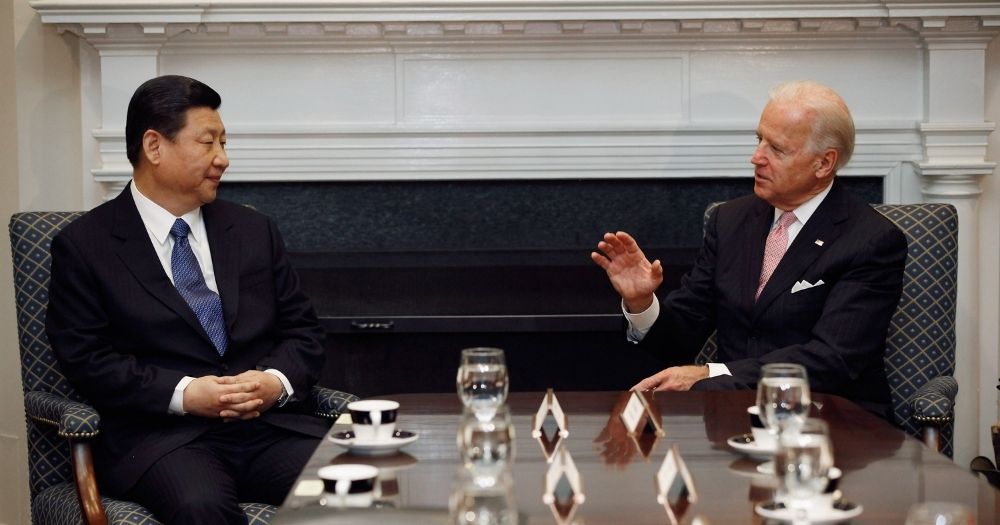In an op-ed published by the New York Times, Fu Ying, the former vice foreign minister of China, proposed a way forward for the U.S. and China, after a long and battering four years for the two countries' relations.
Op-ed by Chinese political elite hints at repairing of U.S.-China relations
Fu, who is generally considered a moderate among the political elite in China, is one of the highest-ranking women in the country.
"So far, this Op-Ed is the only official statement, beyond the usual platitudes, that has come from the government about the election of Joe Biden to the presidency," wrote NYT editor Kathleen Kingsbury, explaining the decision behind publishing the piece.
"Fu is setting out the terms under which her government plans to work with a new Biden administration. Those terms, which include both veiled threats and olive branches, could have significant consequences for American foreign policy for the rest of our lifetimes."
The op-ed, titled "Cooperative competition is possible between China and the U.S.", lays out what Beijing wants to see from Washington when it comes to bilateral relations, such as backing off from what the former sees as its core issues that are non-negotiable, including Taiwan.
Should the U.S. fulfils what China wants from them, the relationship could potentially be "refreshed", she suggested.
U.S.-China relations "suffered serious damage" in last four years
Fu said that bilateral relations between the two leading powers have suffered greatly in the last four years, with both sides having grave concerns regarding each other.
She opined that both view the other party as a significant threat to their own interests.
"It seems that both sides are convinced it is always the other party that is in the wrong; any initiative one of them undertakes is invariably seen by the other as an attempt to undermine it," Fu explained.
She illustrated her point using the Belt And Road Initiative, saying that it was proposed by China as a "global public good to promote more growth and greater connectivity", but was seen as the U.S. as part of the competition power's strategy to gain geopolitical dominance.
Competition between China and U.S. unavoidable, but must be managed well and cooperatively
Fu explained that the two sides need to accurately assess the intentions of the other party than to continue moving towards confrontation based on misperceptions.
While competition between the two leading powers is unavoidable, she stressed that the competition must be managed well, and that the two countries must cooperate to manage this competition.
What Beijing wants from Washington
China is addressing American companies' concerns
Fu said that one of the Chinese government's main concerns lied in the U.S. government's "bullying" of Chinese companies in the U.S., such as the ban on Huawei and its attempt to ban TikTok as well.
Fu added that it was also important for Beijing to address legitimate security concerns that American companies face in China, such as their calls for better intellectual property protection, cybersecurity and privacy.
The U.S. should refrain from interfering in others' affairs
Fu further said that China wants the U.S. to refrain from "interfering in other countries' internal affairs".
"China finds it offensive when the United States points a finger at the Chinese system or takes action against Beijing for its policies on domestic matters," she wrote.
"America’s concerns that foreign forces might interfere with its presidential elections should serve as a good reminder of why other countries are so sensitive about U.S. intervention in their own domestic affairs."
Fu called for mutual respect for each country's political system to create a more stable relationship between the two powers.
U.S. should avoid challenging China on Taiwan
In addition, Fu said the U.S. should "avoid challenging China on the issue of Taiwan or by meddling in the territorial disputes of the South China Sea".
While she said "China's growing navy has put some pressure on the U.S. in the western Pacific", she claimed that the U.S.'s "insensitivity" toward Chinese concerns over Taiwan and the South China Sea "can only make Beijing suspect Washington's motivations".
Fu implied in her piece that the U.S.'s move in siding with other claimants and stance on Taiwan may brew greater misunderstandings.
She suggested that the two countries should communicate more effectively, to build mechanisms that will help the two countries manage potential crises and find ways to coexist peacefully.
Fu stressed that cooperation between the two powers would benefit the world greatly, especially in developing an affordable and accessible vaccine to combat the ongoing Covid-19 health crisis, among many pressing global issues that call for the two countries to unite their efforts.
Totally unrelated but follow and listen to our podcast here
Top image via Lintao Zhang/Getty Images
If you like what you read, follow us on Facebook, Instagram, Twitter and Telegram to get the latest updates.
